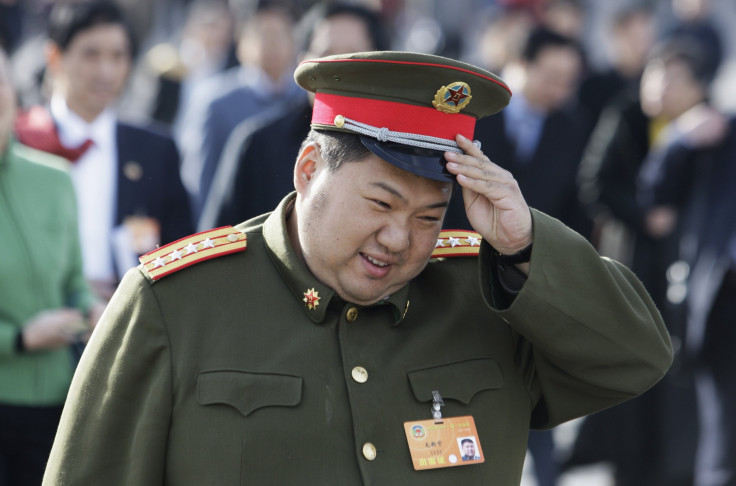Marx’s Brothers: As Venezuela Prepares To Embalm Chavez, Mao’s Grandson Calls For Review Of Chairman’s Legacy

As Venezuelan officials prepare to embalm the body of recently deceased Socialist President Hugo Chavez and place him on display in a glass casket -- in the same manner as Communist titans like Vladimir Lenin of Russia, Ho Chi Minh of Vietnam and Chairman Mao Zedong of China -- the descendant of one of these ex-dictators has called for a reassessment of the personality cult surrounding his illustrious forebear.
Major-General Mao Xinyu, the sole grandson of Chairman Mao, has revealed that he thinks the deification of his grandfather was excessive and that his legacy should be reviewed.
"Many people have been put on an altar, including my grandfather," Mao Xinyu, 43, said at an annual political conference in Beijing, according to the Daily Telegraph.
"But now, only by transforming them back into real people can they be understood and accepted by the public, who will then want to learn from them. Huge changes have taken place in the 37 years since grandpa passed away, but his thought is not outdated.”
Xinyu is a lecturer of Maoist studies at Guangzhou university.
He also addressed the issue of corruption among contemporary Chinese politicians.
"Some [Communist Chinese] party and government leaders today sing slogans like 'serve the people' everyday, but the democratic supervision is simply nonexistent," he added.
Xinyu, who is the youngest general in the People’s Liberation Army, is the son of Mao Anqing, who was the offspring of Chairman Mao and his then wife Yang Kaihui. Xinyu’s mother was Chairman Mao's daughter-in-law, Shao Hua, a noted photojournalist. (Anqing died from schizophrenia.)
Despite his recent pronouncements, Xinyu has long venerated his famous grandfather.
In the early 2000s, Xinyu published a book about Mao, calling him the “spine of the Chinese people.”
"In this new century, this new period of history, to publicize Mao Zedong's thought, to carry forward Chairman Mao's glorious image, this work is even more important than before," he told Reuters.
The book omits any mention of the 50 million or so Chinese who died as a direct result of Mao’s brutal policies.
In a March 2008 interview published in a newspaper called Xinkuaibao, he reiterated that his grandfather was “god” and a “perfect man.”
“As a descendant of the Leader [Mao], I do have a lot of stress,” Xinyu complained.
“I feel that people are always watching my behavior. So I must do good. I am quite well-known, and, when I exercise in some parks, people recognize me. They are all very concerned about me, and sometimes we talk about my family. Some people in society care for my family, and they do know a lot about us. If I could choose, I would be born into such a family again. I feel very privileged.”
A few days ago. Xinyu called on North Korea to abandon its nuclear ambitions.
"North Korea must go towards denuclearization and peaceful development," he said, according to state-run news agency Xinhua, adding that a non-nuclear Pyongyang "is a cherished wish of the Chinese people."
The Chosun Ilbo newspaper of South Korea quoted an unnamed diplomatic source in Beijing who commented: "The fact that Mao Xinyu, a prominent figure among the children and relatives of the Chinese revolutionaries, mentioned denuclearization of North Korea reflects the very high level of frustration among Chinese people about North Korea's third nuclear test."
Xinyu is a controversial figure in China and the object of some derision -- both for his rotund appearance and for his unusually rapid rise in his career.
Pu Zhiqiang, an attorney and human rights activist, once condemned Xinyu’s prominence as a form of gross nepotism.
"To have such an unqualified person become a general in China's military -- it's an insult to the People's Liberation Army," he said. "Those promoted in the future as generals should feel humiliated by this."
Meanwhile, Chairman Mao, who died in 1976, was embalmed and remains in Mausoleum of Mao Zedong in Tiananmen Square in Beijing where the public can view him through eternity.
© Copyright IBTimes 2024. All rights reserved.




















